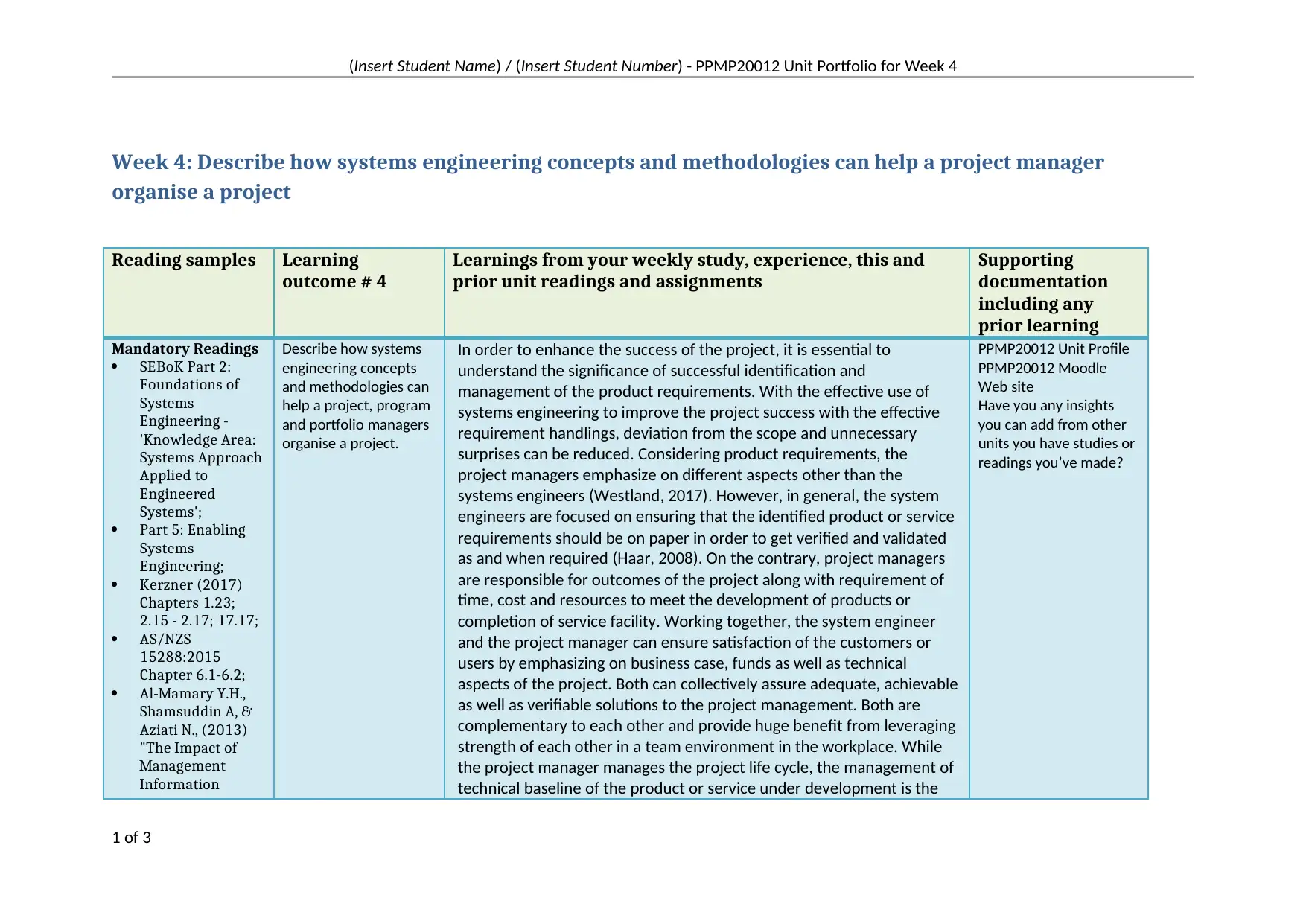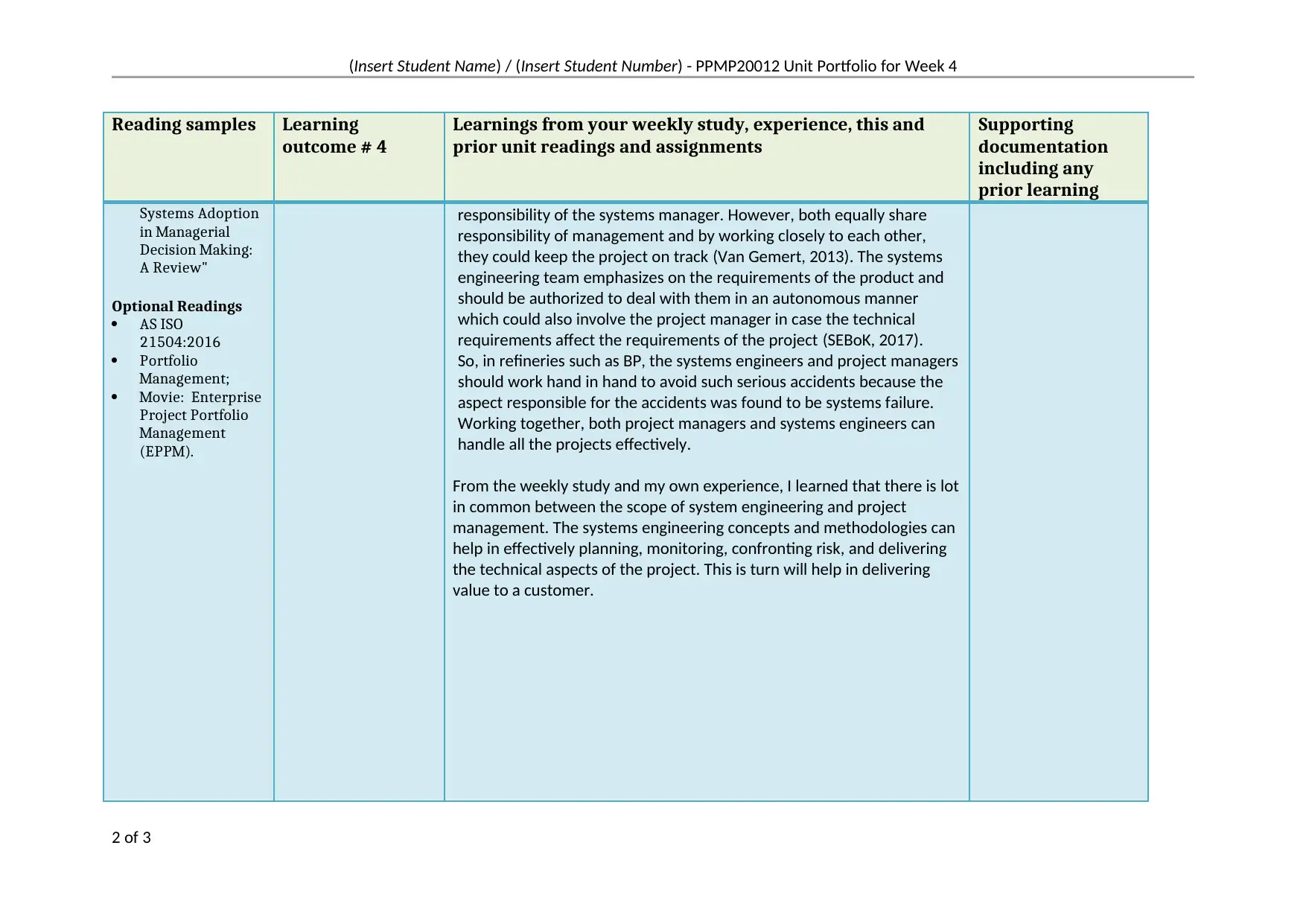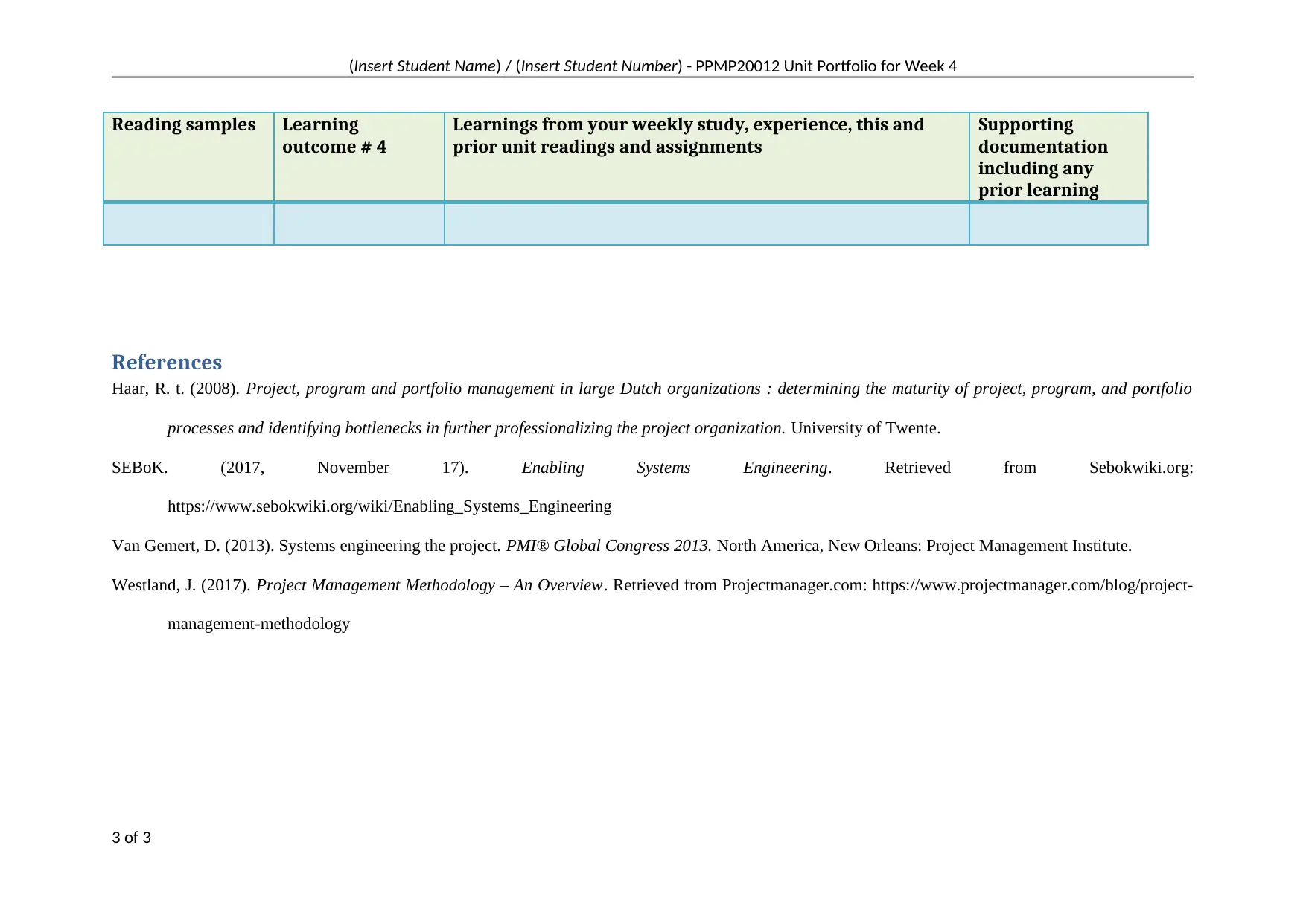PPMP20012 Portfolio Week 4: Systems Engineering in Project Management
VerifiedAdded on 2023/06/08
|3
|851
|272
Homework Assignment
AI Summary
This portfolio assignment, submitted by a student for the PPMP20012 unit, explores the critical relationship between systems engineering and project management. The assignment focuses on how systems engineering concepts and methodologies can assist project managers in organizing projects effectively. It emphasizes the importance of identifying and managing product requirements to reduce scope deviations and unforeseen issues. The student highlights the complementary roles of systems engineers and project managers, stressing the benefits of their collaboration in ensuring customer satisfaction and achieving project goals. The assignment draws on mandatory and optional readings, including SEBoK, Kerzner (2017), and AS/NZS 15288:2015, to support its analysis. The student provides insights from their weekly studies and experiences, demonstrating the application of systems engineering in project planning, risk management, and the delivery of technical aspects. The references include key publications to support the analysis.
1 out of 3







![[object Object]](/_next/static/media/star-bottom.7253800d.svg)